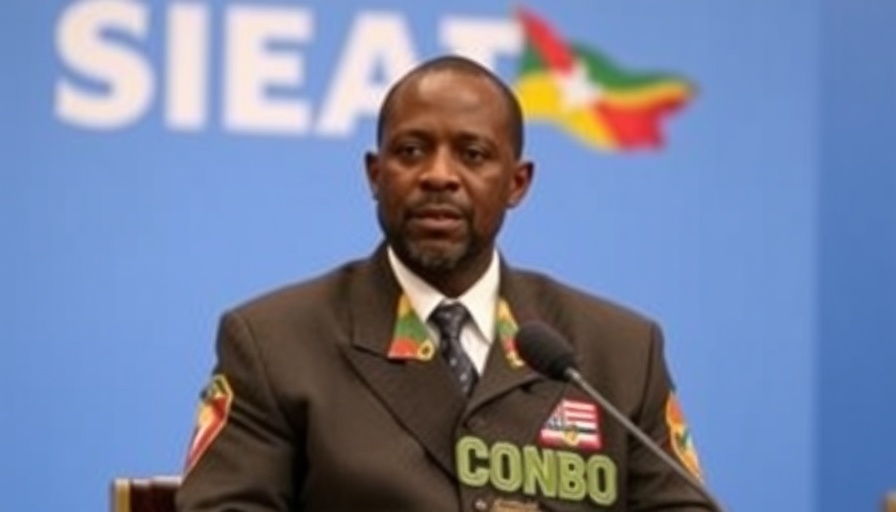
Failed Talks in Qatar Highlight Regional Tensions
Amid escalating violence and conflict in eastern Congo, recent peace talks in Qatar have disintegrated without yielding any significant progress. Delegations representing the Congolese government and the M23 rebel group departed Doha after failing to reach an agreement on fundamental issues, raising alarms about the potential for a deeper regional crisis. Both sides were stuck over key issues such as the release of prisoners linked to the conflict, with M23's demands proving to be a critical stumbling block.
The M23's Territorial Ambitions and Political Negotiations
Despite a series of territorial gains since January, which included capturing eastern Congo's largest cities, the M23 has faced an uphill battle securing its demands at the negotiating table. Congolese President Felix Tshisekedi's administration has firmly rejected M23's request to release hundreds of prisoners, stating, "Our justice system is independent. Crimes have been committed. Some people must pay." Analysts worry that such rigidity could further entrench the conflict, as calls for political dialogue remain unfulfilled. Tshisekedi has staunchly declined proposals for talks with the M23, labeling the group as terrorists.
Repercussions of Failed Peace Initiatives on the Ground
The stalled negotiations come amid renewed fighting in the Walikale territory, directly affecting thousands of civilians who have already endured displacement and violence. The United Nations has reported a surge in humanitarian crises as a result of the ongoing conflicts, with many fleeing their homes to escape the violence. As clashes persist, fears grow that a failure to restore peace could invite further regional instability, drawing in neighboring countries and complicating international diplomatic efforts.
Geopolitical Implications: The Role of External Actors
The unfolding crisis in Congo illustrates broader implications for regional geopolitics. The involvement of external actors, particularly from Rwanda, complicates the situation as historical grievances resurfac, impacting both diplomatic relations and trade in the region. The international community’s response to this humanitarian disaster could govern future foreign relations and investments in the Great Lakes region. Policymakers observing these developments must navigate a myriad of issues, from humanitarian aid to security cooperation, working to prevent the crisis from escalating further.
What Lies Ahead: Opportunities for Diplomatic Interventions
The unresolved issues in the Doha negotiations signify a vital juncture for all stakeholders involved. Leaders from across Africa and the broader international community must prioritize comprehensive diplomatic strategies that extend beyond the immediate ceasefire discussions. Gains made through collective regional cooperation and nuanced engagement could lay the foundation for lasting peace. This path forward will require serious commitment, not only from the Congolese government and the M23 but also from aligned regional powers and international partners, particularly amid an evolving landscape of African governance and international alliances.
 Add Row
Add Row  Add
Add 


Write A Comment